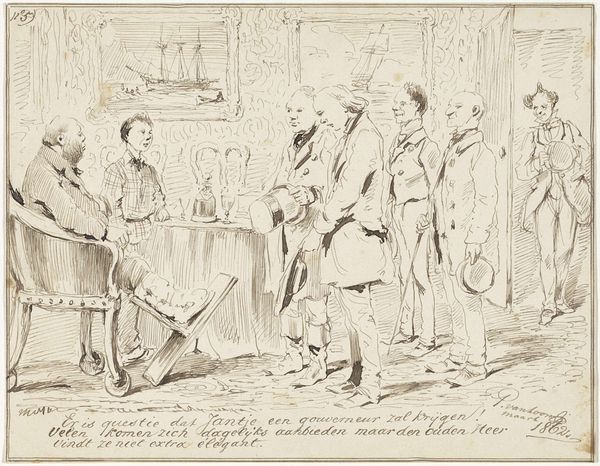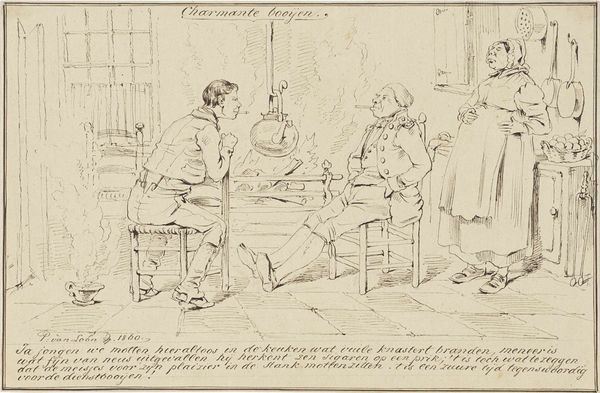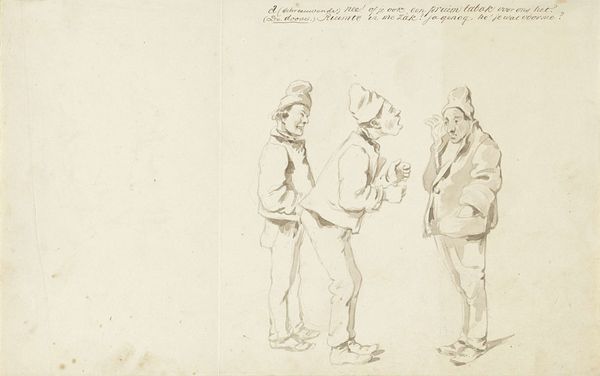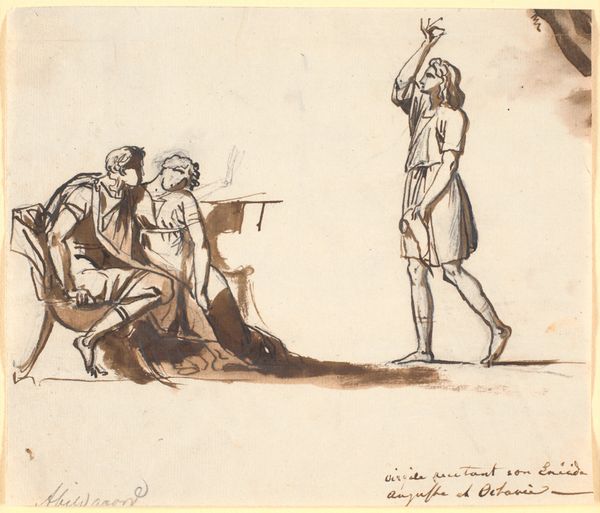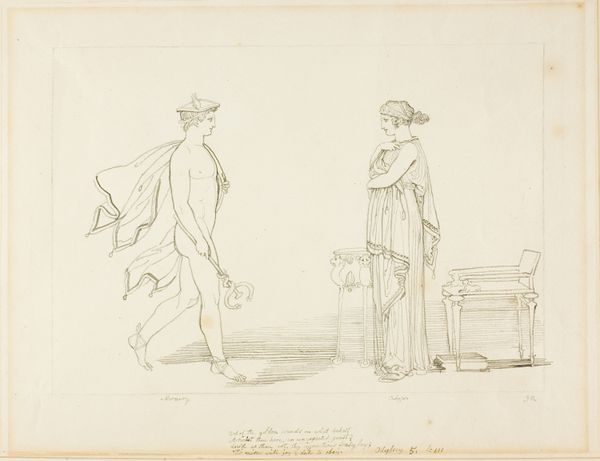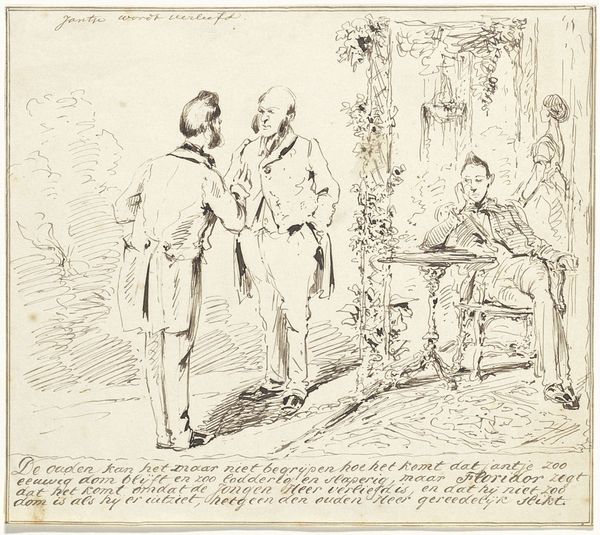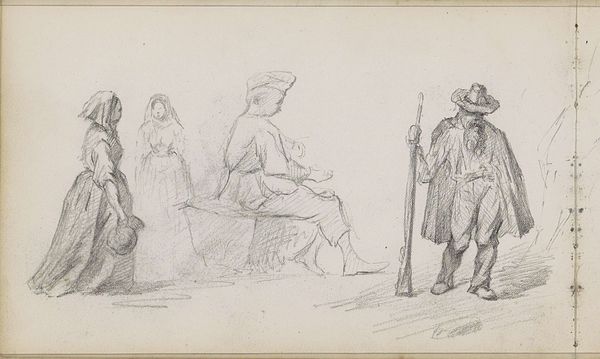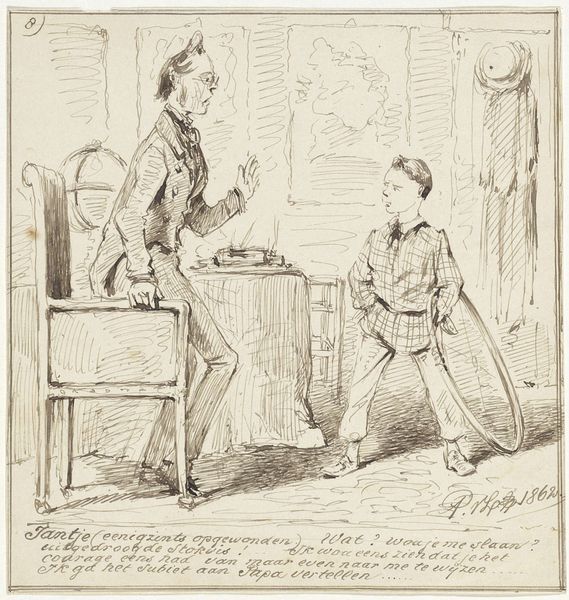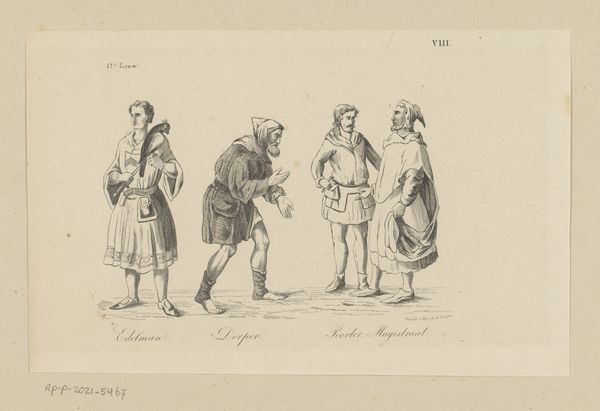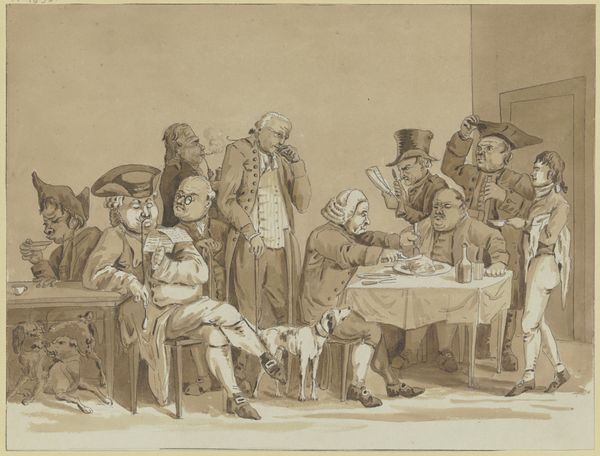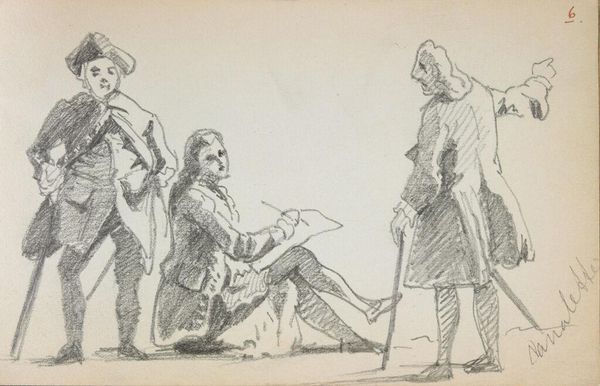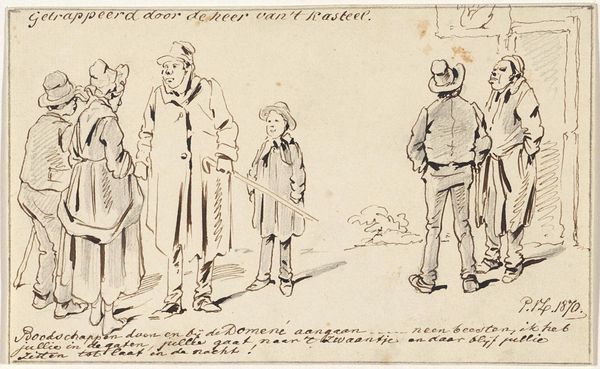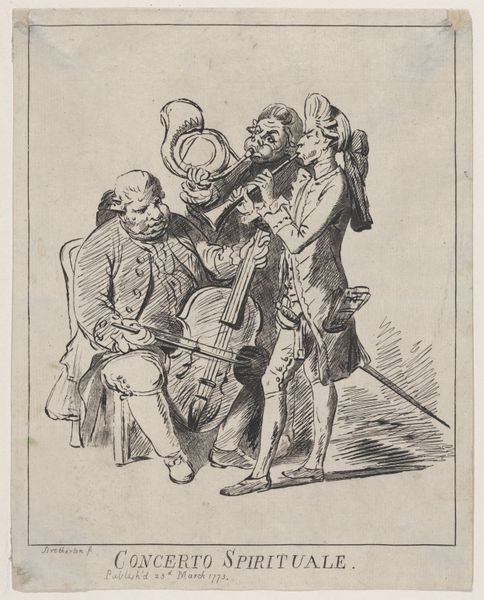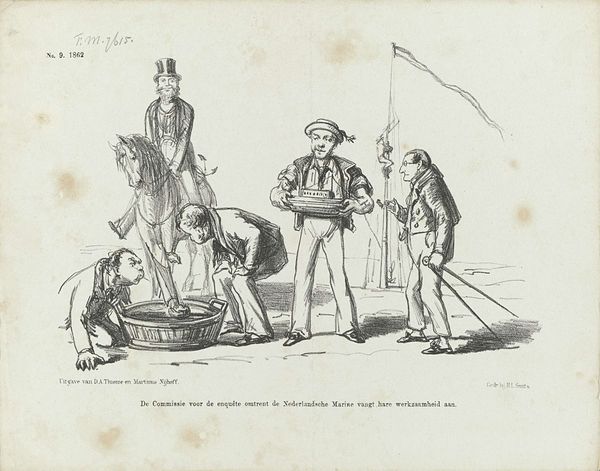
drawing, paper, ink
#
portrait
#
drawing
#
narrative-art
#
figuration
#
paper
#
ink
#
genre-painting
#
academic-art
Dimensions: height 198 mm, width 217 mm
Copyright: Rijks Museum: Open Domain
This caricature was made by Pieter van Loon in the 19th century using pen and ink. The scene depicts a rural boy in conversation with a well-to-do family. Notice the contrast in dress. The clothing symbolizes social status. The father, in a patterned dressing gown, represents domestic comfort and privilege. In contrast, the peasant boy's rustic attire symbolizes simplicity, perhaps even naiveté. The table, laden with tea service, acts as a stage for this social drama. It recalls earlier depictions of feasts and gatherings, yet here it underscores the gap between the classes. This echoes in other satirical works, where food and dining become symbols of excess and inequality. This interplay taps into a deep-seated psychological tension. It is the unease of social disparity and the questioning of societal roles, engaging viewers through shared cultural anxieties. Such images are not merely records of their time; they are mirrors reflecting our own anxieties about identity and belonging, resurfacing and reshaping through history.
Comments
No comments
Be the first to comment and join the conversation on the ultimate creative platform.
